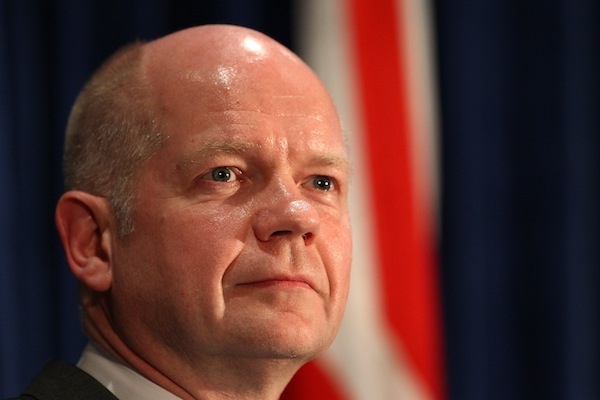The Prime Minister’s two statements on the Algerian hostage crisis on Friday and Sunday set some tongues wagging about what sort of a role he saw Britain playing in the ‘global response’ that was ‘about years, even decades’ to the terror threat in North Africa.
William Hague fleshed that out a little bit more in his Today programme interview, arguing that the West couldn’t resolve all the world’s problems:
‘It is a complete illusion to think that we are omnipotent in all of these respects. Of course there are many, many factors at play. I’m describing to you what the United Nations have been doing, what Western countries have been doing. We’ve also been increasing our counter-terrorism co-operation with western African countries – Nigeria and Mauritania and so on.’
He added that ‘a whole variety of political and economic instruments’ were needed ‘as well as, where necessary, the military power’. But in the case of military power, he said, France had already suppled that, and in any case that power ‘must come from African countries in order to resolve these problems’.
But Hague was also keen to argue on the radio that when the world’s policemen do intervene, it is for good (Tim Montgomerie has a forceful piece making the same point in the Times today): he said getting involved in Libya meant the west had reduced problems in Mali, rather than added to them.
The Cobra committee will meet again this morning, with the Prime Minister giving another statement in the Commons at 3.30pm. One thing to look out for when he does, as well as what he envisages Britain’s role being in the decades-long global response, is whether he now accepts that Algeria had to act without contacting him last week. He was clear on Friday that he had been disappointed not to have been contacted, but new information may well have shown that the Algerian forces had little choice.







Comments